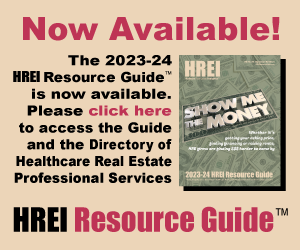News from EBRI
1100 13th St. NW Suite 878 Washington, DC 20005 (202) 659-0670 www.ebri.org Fax: (202) 775-6312
FOR IMMEDIATE RELEASE: March 22, 2018
CONTACT: Paul Fronstin, EBRI (author), fronstin@ebri.org, (202) 775-6352
![]() EBRI Research Finds Millennials Bring Online Consumer Behaviors to Health Care Interactions
EBRI Research Finds Millennials Bring Online Consumer Behaviors to Health Care Interactions
New research by the Employee Benefit Research Institute examines how Millennials interact with their health care providers, finding material differences between this generation’s approach and that of other generations. Analysis of the EBRI/Greenwald & Associates Consumer Engagement in Health Care Survey (CEHCS) reveals how Millennials—who now outnumbers Baby Boomers—are more comfortable with non-traditional engagement with their health care providers, and are more likely to apply shopping habits commonly found in the online retail realm to their health care decision-making. The analysis finds that Millennials are:
• More than twice as likely as Baby Boomers to use a walk-in clinic. Thirty percent of millennials have used a walk-in clinic, compared to 14 percent among Baby Boomers and 18 percent among Gen Xers.
• More than twice as likely to be interested in telemedicine than Baby Boomers. Forty percent of millennials are interested in telemedicine compared with 19 percent among Baby Boomers and 27 percent among Gen Xers.
• More likely than other generations to have researched health care options, such as checking the quality or rating of a doctor or hospital (51 percent Millennial vs. 34 percent Gen X and 31 percent Baby Boomers); using an online health cost tracking tool (28 percent Millennial vs. 17 percent Gen X and 10 percent Baby Boomers); or otherwise finding health cost information (72 percent Millennial vs. 65 percent Gen X and 64 percent Baby Boomers).
• More likely to participate in wellness programs: for example, Millennials are more than twice as likely than Baby Boomers to participate in counseling on stress management, mindfulness classes, and resiliency training (33 percent Millennial vs. 21 percent Gen X and 15 percent Baby Boomers).
“Interestingly, Millennials’ health care consumption habits correspond to being significantly more satisfied with their health plan choices,” notes Paul Fronstin, Director of the Health Research and Education Program at EBRI. He points out that Millennials are more satisfied with the ease of selecting a plan (56 percent Millennial vs. 46 percent Gen X and 43 percent Baby Boomers); information available to help understand health plan choices (56 percent Millennial vs. 46 percent Gen X and 46 percent Baby Boomers); number of health plans to choose from (47 percent millennials vs. 34 percent Gen X and 32 percent Baby Boomers); and availability and affordability of health plans (46 percent Millennial vs. 33 percent Gen X and 29 percent Baby Boomers). “This perhaps reflects their comfort in researching consumer decisions online, and applying the same consumer habits they use on Amazon or other retail online cites to the health care arena.” Fronstin says.
The full report is published in the March 5 Issue Brief, and is available online here. A related EBRI Fast Fact is located here.
The Employee Benefit Research Institute is a private, nonpartisan, nonprofit research institute based in Washington, DC, that focuses on health, savings, retirement, and financial security issues. EBRI does not lobby and does not take policy positions. The work of EBRI is made possible by funding from its members and sponsors, which include a broad range of public, private, for-profit and nonprofit organizations. For more information go to www.ebri.org or visit the web site of EBRI’s affiliated American Savings Education Council at www.asec.org.
The full content of this article is only available to paid subscribers. If you are an active subscriber, please log in. To subscribe, please click here: SUBSCRIBE






